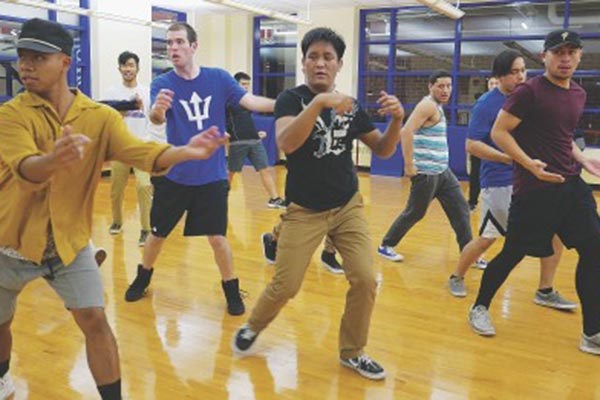
12/15/2015
Lowell Sun
By Jonathan Richmond
"Dancing is a lifestyle," UMass Lowell undergraduate Kalya Iek says. "Many of the people that can't find hobbies find dancing. It's a way to get people together. It's our way. It's a new clique."
The university's new Urban Choreography Club drew 40 members on day one and regularly fills a studio space for its weekly creative sessions.
"Other activities have barriers to entry," says Cullin Lam, the club's founder and president. "Lowell is a low-income city. Dance, anyone can do it."
Lowell-area youth prefer urban choreography, derived from the street but polished into art. Compared to other dance forms, "It's more of a pure expression because you can do anything you want," says Kobunrong Ung.
Unusually for dance, the Urban Choreography Club is mostly male. "It's more of a guy thing because, with the word 'urban,' people think gangster or street and that implies masculine dancing," says Joshua Espares.
Several club members emphasize that dance allows them to express a range of feelings and emotions, and build a sense of family and community.
Tim Sokhoeun has been teaching urban choreography at Lowell Community Health Center's Teenblock for more than three years. The center's Awareness and Development of Adolescent Minds Project targets at-risk youth and aims to build the identity and self-confidence.
Sokhoeun says Teenblock youth relate to urban dance because of its expressiveness and freedom of style.
"It gets them away from hectic lifestyles," he says. "They are comfortable stepping out and expressing themselves. For someone struggling to speak in public, dancing might help them."
Channou Aing participated in Teenblock and is now an active member of the UML club. Aing says she used to breakdance, but now connects strongly with urban choreography. "It is always creative, different every time," she says. "The dance community is welcoming. I just live it."
Vattana Thach danced his way through a disruptive childhood and educational experiences. He praises his parents for making things "comfortable regardless of the situation," but says they had to "struggle a lot" with rebuilding after a failed business and "moving from apartment to apartment." Accepted at a number of four-year colleges, he says he listened to advice from both a relative and Lowell High School staff to attend community college because it was cheap and avoided loans.
He enrolled at Middlesex Community College with plans to transfer after two years. The courses he was encouraged to take at Middlesex were not eligible for transfer credit at the college he most wished to attend. For now, he teaches dance.
Thach danced with other Lowell High students, finding escape in the fact that "there are no rules. There is no right or wrong. The freedom of expression keeps you out of trouble; coping with your emotions, experimenting and not being judged for it. The only pressure comes from ourselves. Through dance we get to find ourselves while losing ourselves."
For those that dance regularly, "it is often the only thing they have that makes sense for them and is always there for them whether they are happy, sad, depressed, or struggling. It is the best form of release. When you are in a room of people it is better because you support each other."
Dance, says Thach, makes a vital connection for the many in Lowell whose family lacks the support structures they need, particularly those who may have caring parents, but not ones that are able to talk with their kids about what matters to them. "It fulfils almost every need that they are not getting at home from their family. That's what it was for me. If it wasn't for urban dance, I don't know where I'd be. It develops their self-confidence. Everyone feels better when they find a group they can connect with."
End of term, and UML student Nissay Keo has these thoughts: "All done with finals!! No dance projects!! No dance practices!! What the heck am I going to do with myself besides work? I already miss everybody."
"Tomorrow there is no practice," says Toby Atannon. I haven't felt this empty since the day I moved away from my family. But I found this new home and since that day everything has changed. I haven't realized how much I loved dancing till now."
